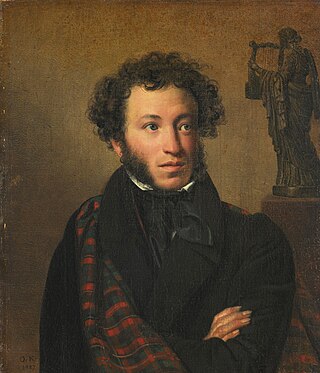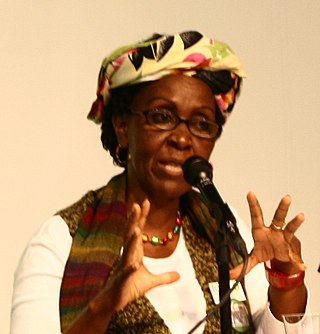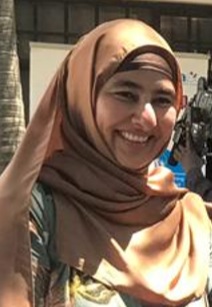Related Research Articles

Alexander Sergeyevich Pushkin was a Russian poet, playwright, and novelist of the Romantic era. He is considered by many to be the greatest Russian poet, as well as the founder of modern Russian literature.

Haruki Murakami is a Japanese writer. His novels, essays, and short stories have been best-sellers in Japan and internationally, with his work translated into 50 languages and having sold millions of copies outside Japan. He has received numerous awards for his work, including the Gunzo Prize for New Writers, the World Fantasy Award, the Frank O'Connor International Short Story Award, the Franz Kafka Prize, the Jerusalem Prize and the Princess of Asturias Awards.
Malaika Nakupenda Malaika is a Swahili song written by Tanzanian artist, Adam Salim in 1945 and recorded for the first time by a Kenyan musician, Fadhili Williams. This song is possibly the most famous of all Swahili love songs in Tanzania, Kenya and the entire East Africa, as well as being one of the most widely known of all Swahili songs in the world. Malaika in this context means "angel" in Swahili, and this word has always been used by the Swahili speakers to refer to a beautiful girl.

David Stephen Mitchell is an English novelist, television writer, and screenwriter.

Following Tanganyika's independence (1961) and unification with Zanzibar (1964), leading to the formation of the state of Tanzania, President Julius Nyerere emphasised a need to construct a national identity for the citizens of the new country. To achieve this, Nyerere provided what has been regarded by some commentators as one of the most successful cases of ethnic repression and identity transformation in Africa.
African literature is literature from Africa, either oral ("orature") or written in African and Afro-Asiatic languages. Examples of pre-colonial African literature can be traced back to at least the fourth century AD. The best-known is the Kebra Negast, or "Book of Kings" from the 14th century AD. Another well know book is the Garima Gospels, one of the oldest known surviving bible in the world, written in Ge'ez around 500 AD.
Swahili literature is literature written in the Swahili language, particularly by Swahili people of the East African coast and the neighboring islands. It may also refer to literature written by people who write in the Swahili language. It is an offshoot of the Bantu culture.
Aniceti Kitereza (1896–1981) was a Tanzanian Catholic cleric and novelist, born in 1896 on the island of Ukerewe, in Lake Victoria, in modern day Ukerewe District of Mwanza Region in Tanzania. In 1945, he wrote the first novel in his native language, Kikerewe. Only in 1981, it was published in Swahili under the title Myombekere na Bugonoka na Ntulanalwo na Bulihwali.

Abdulrazak Gurnah is a Tanzanian-born British novelist and academic. He was born in the Sultanate of Zanzibar and moved to the United Kingdom in the 1960s as a refugee during the Zanzibar Revolution. His novels include Paradise (1994), which was shortlisted for both the Booker and the Whitbread Prize; By the Sea (2001), which was longlisted for the Booker and shortlisted for the Los Angeles Times Book Prize; and Desertion (2005), shortlisted for the Commonwealth Writers' Prize.
Mwananchi Communications Ltd is a company based in Tanzania. Mwananchi Communications Ltd, engages in the print media and digital media, and is the publisher of Tanzania's leading daily newspaper, Mwananchi, and others such as The Citizen, Sunday Citizen, Mwananchi Jumapili, Mwananchi Scoop and Mwanaspoti.
Ebrahim Hussein is a Tanzanian playwright and poet. His first play, Kinjeketile (1969), written in Swahili, and based on the life of Kinjikitile Ngwale, a leader of the Maji Maji Rebellion, is considered "a landmark of Tanzanian theater". The play soon became one of the standard subjects for examinations in the Swahili language in Tanzania and Kenya. By 1981, it had been reprinted six times.
Up to the second half of the 20th century, Tanzanian literature was primarily oral. Major oral literary forms include folktales, poems, riddles, proverbs, and songs. The majority of the oral literature in Tanzania that has been recorded is in Swahili, though each of the country's languages has its own oral tradition. The country's oral literature is currently declining because of social changes that make transmission of oral literature more difficult and because of the devaluation of oral literature that has accompanied Tanzania's development. Tanzania's written literary tradition has produced relatively few writers and works; Tanzania does not have a strong reading culture, and books are often expensive and hard to come by. Most Tanzanian literature is orally performed or written in Swahili, and a smaller number of works have been published in English. Major figures in Tanzanian modern literature include Shaaban Robert, Muhammed Said Abdulla, Aniceti Kitereza, Ebrahim Hussein, Abdulrazak Gurnah and Penina Muhando.
Gabriel Ruhumbika is a Tanzanian born novelist, short story writer, translator and academic. His first novel, Village in Uhuru, was published in 1969. He has written several subsequent novels in Swahili. He has also taught literature at a number of universities, and, until his retirement in 2016, he was a professor of Comparative Literature at the University of Georgia in the USA.
Ahmed Olotu popularly known as Mzee Chillo is a Tanzanian veteran actor. He has starred in over 100 movies in his film career. He has been featured in both regional and international films making him among the greatest Tanzanian actors of all time. He has starred in movies with big names on the African film industry including Steven Kanumba, African stars Nkiru Sylvanus, Emmanuel France and Mercy Johnson.

Paradise is a historical novel by the Nobel Prize-winning Zanzibar-born British writer Abdulrazak Gurnah, first published in 1994 by Hamish Hamilton in London. The novel was nominated for both the Booker Prize and the Whitbread Prize for Fiction.

Elieshi Lema is a Tanzanian writer and publisher, also active in Tanzania's civil society.

Zena Yusuf Mohammed, known by her stage name Shilole, is a Tanzanian musician and actress. She specializes in R&B, Zouk, and new generation Tanzania music popularly known as Bongo Fleva. Shilole is considered one of the top female artists in Tanzania; her works has been nominated 3 times in KTMA, Tanzania's top music awards. She has also recorded with a number of artists including Mr Camera and Selebobo (Nigeria). Shilole is considered as one of the most influential artist among her fans and is said to be the most loved female artist in Tanzania, the first female artist in Tanzania to clock 1 million followers in Instagram, Tanzania's most popular social network... Shilole is credited as one of the key figures in the popularization of Tanzania's new music genre Bongo Flava, as a career to upcoming female artists.

Nahida Esmail is a Tanzanian author and poet. She is a lifetime sponsor of 'The Teen Writers Awards'.
References
- ↑ Mtanga, Fadhy (22 October 2020). "Fadhy Mtanga" . Retrieved 9 February 2021.
- ↑ "Fadhy Mtanga – poems -". dokumen.tips. Retrieved 20 December 2018.
- ↑ Huba. "Huba". mwalimuwakiswahili.com.
- ↑ Fungate (26 May 2017). "Press Reader" . Retrieved 20 December 2018.
- ↑ Mngodo, Esther Karin (16 February 2021). "Tanzanian writers fighting sextortion through a novel". The Citizen. Tanzania. Retrieved 5 July 2021.
- ↑ Mtanga, Fadhy (30 May 2018). "Ninawaleteeni kitabu cha HISIA". Fadhy Mtanga. Retrieved 20 December 2018.
- ↑ "No Edges | Center for the Art of Translation | Two Lines Press". Two Lines Press. Retrieved 25 April 2024.
- ↑ "Mr. Fadhili Mtanga | HIMSO - Health Information Management Services Organization". HIMSO. Retrieved 25 April 2024.
- ↑ Mtanga, Fadhy (2014). Huba (in Swahili). Jukwaa Huru Media.
- ↑ "Princeton University Library". Princeton University Library. Retrieved 20 December 2018.
- ↑ Mtanga, Fadhy (2017). Fungate (in Swahili). UWARIDI. ISBN 9789987950843.